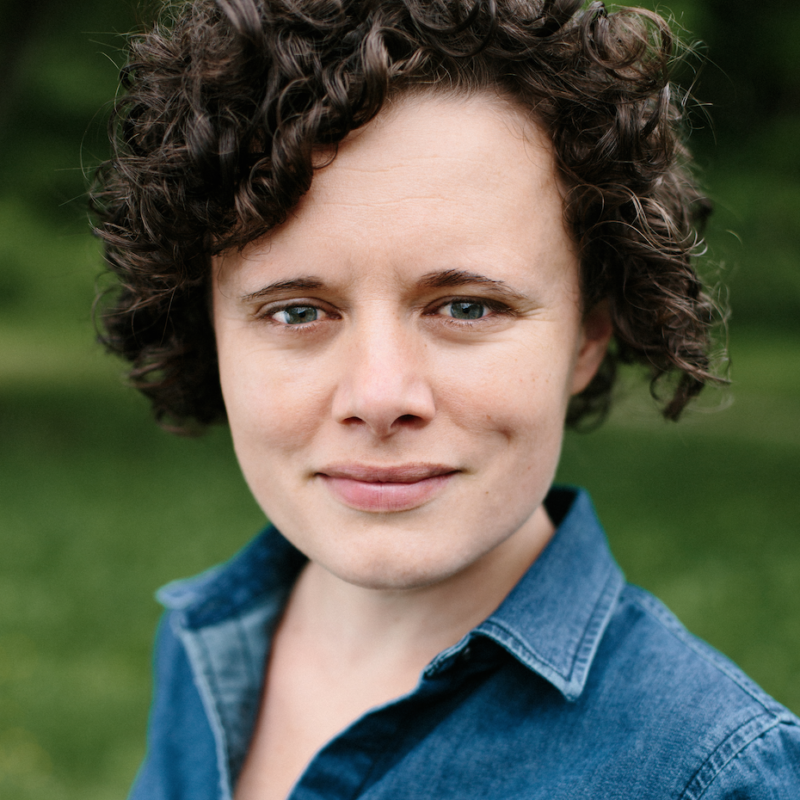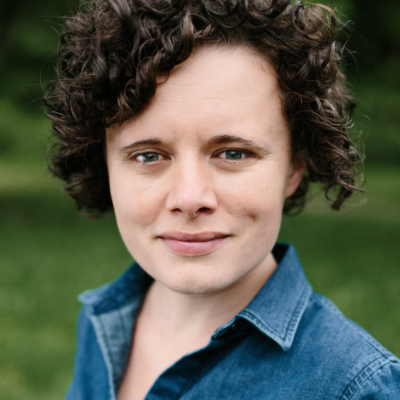Scottsville Supervisor Lindsay Dorrier and his successor, 26-year-old Democrat Christopher Dumler, stood in the lobby of Vivace and sized each other up. Dorrier is Dumler’s senior by more than four decades. He is also the Board’s Rosetta Stone, a man whose tenure as supervisor totals 15 years, and includes the swing vote that paved the way for the long-contested Western Bypass.
But there are similarities. Dorrier was a U.S. Army JAG officer. So is Dumler. Dorrier graduated from UVA Law School. So did Dumler. And when the white-haired Dorrier told his family and a few others that Dumler “doesn’t even have a gray hair,” Dumler corrected him, and said he recently found his first.
“One of these days, I’m going to be able to say, ‘I knew Chris Dumler when…’” said Dorrier to his family, and smacked his political heir apparent on the back.
|
|
When he turned the tables in Albemarle County? For less than an hour on election day, Albemarle County’s highest ranking elected body seemed poised for a partisan reincarnation—a future with a three-Democrat Board, with Independent supervisor Dennis Rooker able to cast a decisive fourth vote. In that alternate political reality, the Albemarle supervisors might’ve voted, 4-2, to raise the county’s 74.2 cent tax rate, reinstate membership in a Tea Party-contested emissions monitoring program, and banish the Western Bypass from county plans for good.
“If we lose one vote of our majority, nothing will change, because we’ll still have 3-3,” Republican Supervisor Rodney Thomas told C-VILLE in September. “If it comes back to having two of these four, it most likely will change.”
As Dumler took the stage to celebrate his 300-vote win over Republican challenger Jim Norwood, Democrat Cynthia Neff sat in an adjacent room, and waited for Rivanna’s six precincts to announce her fate against incumbent Ken Boyd, the Board’s reigning Republican. Boyd was with supporters, from County Sheriff Chip Harding to fellow Republican supervisors Duane Snow and Rodney Thomas, at the Comfort Inn near I-64, awaiting the same.
And then, one after the next, Rivanna’s six districts declared Boyd the winner. Neff acknowledged her defeat, Boyd’s cell phone began to ring, and Dorrier and Albemarle County got the answer to his conjecture, like it or not: We knew Chris Dumler when absolutely nothing changed.
It’s all about the road
It’s not fair to say nothing changed at all. The day after the polls closed, Virginia Governor Bob McDonnell called a Republican high-water mark in the state House of Delegates “a repudiation of many of the President’s policies.” Some voters carry national political dynamics to their local polls, and some do the opposite. But for Boyd and Neff, their race wasn’t about national trends writ local. It was about a road.
“I didn’t want the Western Bypass to become the main issue, but it did become the main issue,” Boyd told C-VILLE during his victory party. “I think it’s a bit of a referendum that says the majority of the people, at least in the Rivanna district, want that bypass.”
Reached by phone, Neff agreed.
“We knew months ago that more people wanted the bypass than didn’t,” said Neff. “But we were hopeful that the message of how we got here, from the cost to the amount of traffic, would help people understand that it’s less about the bypass than about the questions that brought us to this point.”
Roughly one week before Election Day, Neff forwarded media an e-mail from Boyd to Secretary of Transportation Sean Connaughton. Neff’s campaign suggested the e-mail, which inquired about securing Homeland Security funding for an Eastern Bypass, undermined Boyd’s attempt to paint himself as an opponent of the project in his own campaign mailings.
Neff’s move also raised questions concerning bipartisan dialogue on the Board since Rodney Thomas and Duane Snow were elected in 2009. In January 2010, Boyd proposed a six-point Economic Vitality Action Plan during a portion of a supervisors meeting reserved for matters not on the agenda. Last June, as a meeting neared midnight, the three GOP members voted alongside swing-vote Dorrier to remove language barring the Western Bypass from a list of transportation projects after the state pledged funding. The Department of Transportation submitted the project for design-build proposals in September.
“Does funding exclusively drive our transportation decisions?” asked Neff. “Is this an acceptable way for a supervisor to go about setting our transportation policy?” White Hall Supervisor Ann Mallek, who ran unopposed, said the Board needed to “get back the confidence of the voters that we lost when we threw our process down the drain—in June.” Boyd disregarded Neff’s questions and e-mail as “dirty tricks.”
Among discussions of alleviating traffic and distributing funds, the ideological debates over both votes concerned public input and advanced knowledge of the issues. Post-election, Neff told C-VILLE that voters simply seemed “frustrated by our lack of getting stuff done.”
“We’ve been talking about widening 29N for years and years, and nothing happens,” she said. “Everyone acknowledges that it’s not a great road. When people look at the Western Bypass, they think, ‘At least that’s something.’”
Of course, Boyd’s Economic Vitality plan and the Western Bypass were already underway by the time the elections rolled around. And while more Rivanna voters turned out to cast ballots this year than in 2007, it wasn’t to critique him. In fact, 100 fewer people voted for Neff than for Marcia Joseph four years prior. Meanwhile, Boyd improved over his 2007 votes by roughly 500 ballots.
In the Hollymead precinct, where both Neff and Boyd had concentrated their campaigns on the 1,400-unit Forest Lakes development, fewer voters turned out. While redistricting shuffled many to the new Baker-Butler precinct, Neff said the difference wasn’t enough to single-handedly account for Boyd’s victory. “You can’t blame it on redistricting,” she said.
On election night, a longtime Hollymead Democrat who lives in Forest Lakes (and, as an Albemarle County employee, did not give his name) told C-VILLE that Neff was not only the right candidate for their district. “Ken Boyd is not the best choice for Rivanna,” he said.
But how will your neighborhood feel tomorrow if the rest of Hollymead thinks he is, I asked.
“We’ve always had a real mix of political perspectives and opinions,” he responded. “I don’t think it will be a problem.” And, in the absence of problems, maybe things stay the same.
Incremental change
There’s nothing wrong with constants. Forest Lakes woke up the same on November 9 as it did the day before. The bypass is still out for bid. The Albemarle County Board of Supervisors is still three Republicans, two Democrats and one Independent. Cynthia Neff told C-VILLE that she’ll remain involved with the same nonprofits she works with, and will remain engaged with the local political realm.
“I just can’t see going away,” she said. “I have a voice, and I’m going to use it.”
Ken Boyd ran again, and won again, which is what the majority of voters in Rivanna asked for and received. In another alternate political reality—one Boyd himself envisioned last year in an interview with this paper—Boyd might not have run at all.
“I had so much encouragement from supporters of mine over the years. They said, ‘We need you to run again.’ It was an outpouring of encouragement, and I couldn’t turn them down,” said Boyd.
During his victory speech, his cell phone rang multiple times, and played Scott Joplin’s “The Entertainer.” It was Rob Bell. “I’m right in the middle of giving my acceptance speech,” Boyd told him while supporters cheered.
Life repeats itself
Then, there’s Christopher Dumler. And, right now, the Board of Supervisors doesn’t quite know how to play the 27-year-old version of Dorrier. In fact, nobody does. During this year’s campaign season, the Monticello Business Alliance—which is, more often than not, a conservative donor—contributed $7,000 to Republican Jim Norwood’s campaign, but also sent $2,500 to Dumler for good measure.
Dumler is unpredictable. During his victory party, Dumler recounted for Dorrier and this reporter how he won a vote from an 82-year-old Scottsville resident by playing the organ for her on her 40th wedding anniversary. “That’s retail politics for you,” he said, and smiled.
Asked about ensuring Scottsville’s ecnomic vitality, Dumler said his district should establish businesses with ties to greater distribution networks. He was an early investor in the James River Brewing Company, which has already secured a distribution contract with Virginia Eagle. Dumler recently bought more stock.
With the Virginia Eagle contract, the brewery “has a built-in cash flow, essentially,” said Dumler. “It becomes, by virtue of that, sustainable. And, by virtue of that, a tourist attraction. More importantly, it becomes an off-season tourist attraction.”
You’re quite literally invested in the future, I told him.
“Putting my money where my mouth is,” he replied.
So Ken Boyd prepares to start his third term, while Scottsville sees its first new supervisor in more than a decade. It seems like a small change. But Chris Dumler may prove otherwise.
/RI_-IMG_9714.jpg)





